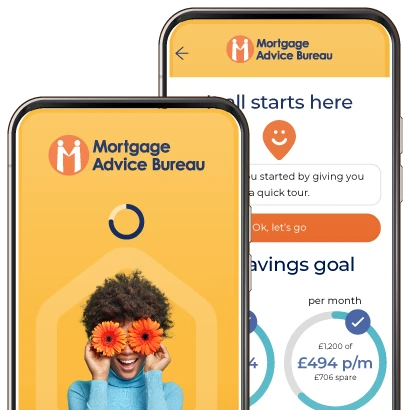With financial circumstances changing and affordability at the top of every homebuyer’s priority list, many are considering taking out a long-term mortgage. Let’s take a look at the ins and outs to see whether it’s a suitable option for you.
While the more ‘traditional’ mortgage term is between 25-30 years, 30-40 year terms - otherwise known as long-term mortgages - are becoming more accessible. Lenders have started to offer long-term mortgages more readily in response to rising interest rates, with demand having increased significantly over the past couple of years.1
Why are long-term mortgages starting to become more popular? Simply put, spreading the mortgage term out over a longer period means you’ll have lower monthly repayments overall. With today’s economic climate continuing to leave the nation feeling the pinch, getting a long-term mortgage could make homeownership much more accessible for many. However, there are several things you should be aware of before you take the plunge:
Potential to pay more interest
For those who favour security of a prolonged fix, long-term mortgages could be an attractive offer. However, as this is a longer-term loan, the first few years of repayments are likely to pay the interest, rather than count towards the value of the loan. There’s also a bigger risk of falling into negative equity, where the loan is larger than the value of the property. This can cause issues if you were to sell, as you’d be unable to pay off your mortgage with the sale of the house.
Take the future into account
While lower monthly repayments may be a lifeline during a cost-of-living crisis, be sure to think ahead when considering a longer-term fixed rate mortgage. This could cause some strain on your finances in later life, as you’ll be paying a lot more money overall due to the additional interest accrued over this period of time.
Similarly, if you’re a first time buyer, consider how long you might live in your first property. For example, you may soon find your circumstances have changed, and you need to upsize. As long-term mortgages mean you’ll pay less equity off, you could end up in a situation where the loan is larger than the value of the house - especially in the first years of taking out the mortgage. This might mean it becomes difficult to sell your property and repay the mortgage value.
Consider all your options
Deciding the length of the mortgage term you should opt for is something you need to take time to consider: namely, how the terms of the mortgage will impact you and which type of mortgage is right for you. If you’re looking at how you can lower your monthly repayments when remortgaging, extending the mortgage term for a shorter period of time and reverting back could be an option.
Just because your initial mortgage is 30-40 years doesn’t mean you don’t have the option to reduce it in the future. You may want to opt for a longer-term fixed rate mortgage in order to get on the property ladder, or if your income has remained the same but can’t compete with current interest rates. Then, when your income increases and your monthly payments become more manageable, you could look to reduce this to a shorter term.
There’s no one-size-fits-all when it comes to mortgages, as everyone’s financial circumstances are different. Speaking to a broker is always worthwhile, as they’ll help you understand the different mortgages and options available to you, and which is most suitable for your needs.
If you’re considering a long-term mortgage, get in touch with our team of expert advisers, who will help determine if this is the right option.
References
1 Daily Mail, 2023
Important information
Your home may be repossessed if you do not keep up repayments on your mortgage.
There may be a fee for mortgage advice. The actual amount you pay will depend on your circumstances. The fee is up to 1% but a typical fee is 0.3% of the amount borrowed.
You may have to pay an early repayment charge to your existing lender if you remortgage.







